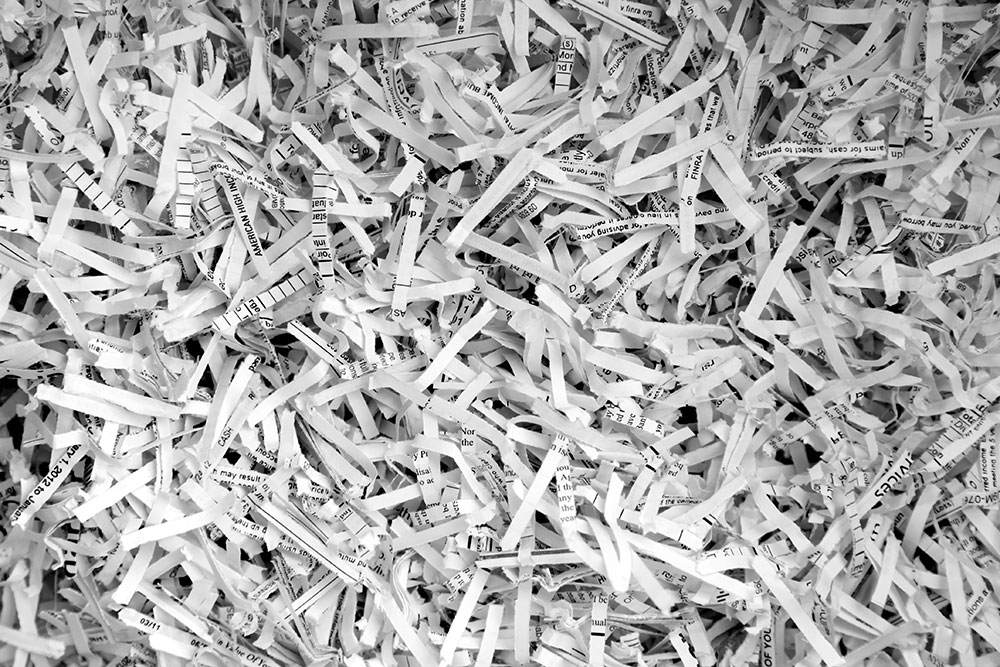This article originally appeared here: Shredding Documents to Keep Your Identity Safe (thebalance.com)
Credit Card Offers, Bank Statements, Canceled Checks, and More
Each day, the U.S. Postal Services delivers more than 187 million pieces of mail1, and much of that correspondence contains sensitive personal information. A lot of it may seem like junk mail, but it could be a useful tool for identity thieves.
Even a partial account number, coupled with the name of your bank, or other information can be matched with any other info that’s been gleaned to open accounts in your name. That’s why it’s important to shred mail or other documents containing potentially sensitive information.
Here’s a deeper dive into the mail and other types of documents you should shred to help protect yourself. If you’re concerned about older documents that weren’t shredded an identity theft protection service may be your best option to identify and fight any potential fraud.
Important:Be sure to lock up any important documents that you don’t shred, including birth and death certificates, adoption papers, marriage and divorce papers, citizenship papers, Social Security cards, tax-related documents, deeds and titles, and financial statements.
Documents Containing Financial Information
An identity thief could potentially use anything that comes from a financial institution. Although you should keep copies of bank and credit card statements for record-keeping purposes, you only need to do so for one year.2 You should shred anything older than that, as well as canceled checks, voided checks, and any online purchase orders that contain your bank account or billing information.
Documents Containing Personal Information
Personal information is what identity thieves are after. Your date of birth and Social Security number are especially vulnerable. So shredding anything that contains that information is a good idea. Other information to be wary of is your full name, address, home or work telephone numbers, and driver’s license number.
This also applies to any mail you receive from the Internal Revenue Service, documents from the Department of Motor Vehicles, and any employment-related correspondence. Other sensitive information that should be shredded includes any travel-related materials other than your passport.
Documents Containing Account Information
Identity thieves also try to capture account numbers, usernames, and passwords. You should shred any documents printed with this information, such as credit card statements, personal and real property tax statements, and bills. You should also shred mail that contains information about your utility accounts, cell phone, and internet bills.4
Junk Mail
Junk mail can be dangerous. Most people don’t realize it, but junk mail usually has a computer barcode on the front that can sometimes contain personal identifying information.5
This includes so-called pre-authorized credit card offers, mail from insurance companies and lenders, and even mail from associations and other membership organizations that may have access to your personal information.
Companies market to specific demographics, often based on your age group, occupation, or purchasing habits. So you should shred all of your junk mail, including the return envelopes provided with it.
Child- and School-Related Mail
Identity thieves don’t discriminate. They will steal a child’s Social Security number just as soon as they would an adult’s. Therefore, any mail you receive concerning your children, their medical records, and school information should go directly into the shred pile.
Likewise, if you received copies of your children’s birth certificates, any mail with your authorization for school field trips, school applications, and report cards, shred them.

